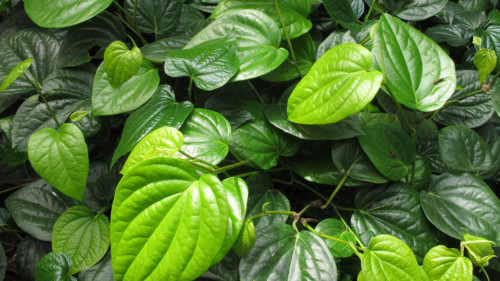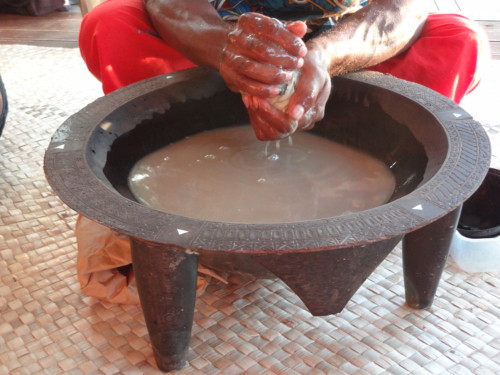Is Kava A Healthier Alternative To Alcohol?
Kava, sometimes known as Kava Kava, is a plant native to the South Pacific Islands, where for thousands of years the native peoples have concocted it into a ceremonial and social drink made from the plant’s roots. The beverage has become increasingly popular in the United States as of late, due to its lately calming effects and smooth, clean finish. Kava kava’s become so popular, in fact, that a trip to the health food store is not necessary to find it. Kava bars, set up similarly to traditional alcohol-serving bars, have sprung up in major cities across the U.S. in the last few years, offering up an alternative to typical 21st-century nightlife culture.
Traditionally, kava is a social drink, and partakers sit communally, sharing a large bowl between multiple people (anyone whose been to Fiji may recall being offered–or drinking!–this ceremonial tea on arrival). Kava lends itself to a relaxed social setting because while it has anxiety-relieving and muscle-relaxing properties, it doesn’t affect cognitive function. Instead, Kava is known to make people more talkative and friendly, and because it is a shared experience, it’s capable of bringing people together. As a result, in many Polynesian nations, kava has become a symbol of friendship and peace.
One of kava’s major appeals, especially for the health-conscious, has to do with it’s somewhat similar effects to alcohol, without the drawbacks (aka no hangovers!). While research hasn’t yet shown kava’s specific effects on the liver, there is much evidence to suggest that kava is a healthier alternative to alcohol.
Kava lends itself to a relaxed social setting because, while it has anxiety-relieving and muscle-relaxing properties, it doesn’t affect cognitive function.
Kava’s psychoactive properties stem from the presence of kavalactones— the active ingredients that create kava’s euphoric effects. These compounds work in non-opiate pathways in the brain to create a relaxing, clear-headed high.
For these and other reasons, kava a popular alternative remedy for anxiety. Studies have shown that it can be used as an alternative to antidepressants and anti-anxiety drugs, and that it may be just as effective. Kava supplements or decoctions can also be used for insomnia without affecting REM sleep. (Preliminary research has shown that kava may be beneficial for a variety of other health ailments like degenerative diseases and nervous system disorders, because of its neuroprotective properties.)
While the traditional kava beverage is painstakingly prepared by female virgins who chew the tough roots into a pulp, spit it out onto a leaf, and then strain water through it– literally!– most modern kava preparation is a bit simpler and significantly more hygienic. The root is ground into a powder, which is then mixed with water and strained through a cloth bag. The resulting taste is slightly bitter and earthy, and has a numbing effect on the tongue.
Kava bars like the Bula Kava House of Portland, Oregon offer a range of kava options, with various strengths and flavors. When owner Judd Rench opened his business, he knew that a “Pacific Northwest kava bar would be a great place to come socialize or use something that has been used medically to treat pain, insomnia, and anxiety for thousands of years.” On this idea he reflects: “Look, I like a good beer as much as the next guy, but it’s nice to have options.”
Other businesses, like Kavasutra, a kava bar with locations in New York City, Denver, and Fort Lauderdale, amongst others, have become fixtures of alternative urban nightlife, offering fresh, quality kava in a relaxed, atmospheric environment.
As is the case with most mind-altering substances, kava should be used in moderation, and should not be consumed in combination with alcohol. When taken occasionally, though, kava offers a great way to connect with others and relax after a long day. Check out a map of US kava bars here.




































